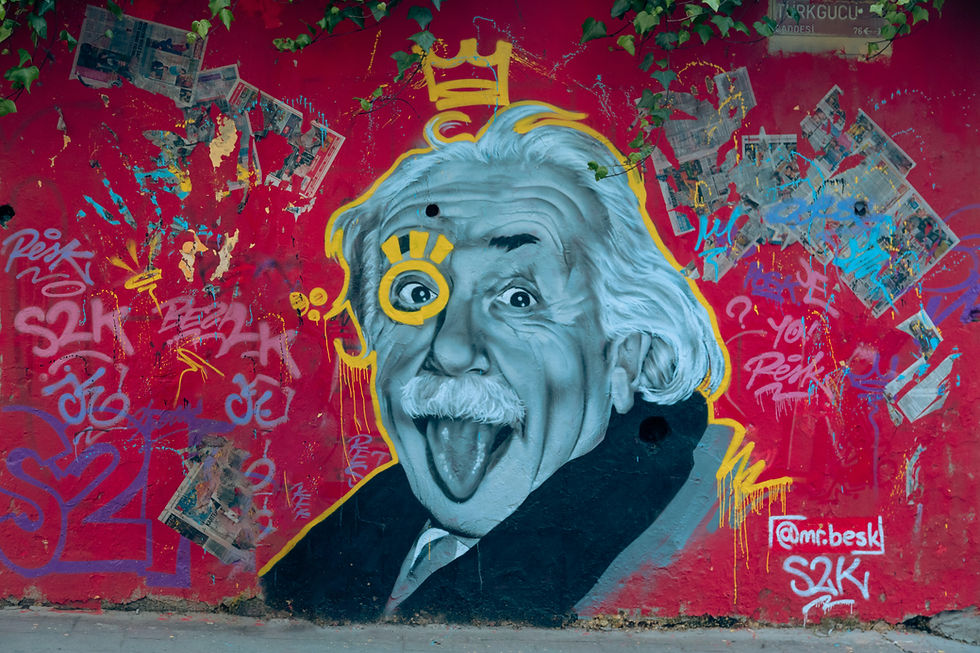How Social Media Reshaped Our Relationship with Fame...

In an era defined by economic uncertainty and growing inequality, the public's relationship with celebrity culture has undergone a seismic shift. The carefully curated world of celebrity privilege, once aspirational, now faces unprecedented scrutiny as social media platforms transform from spaces of mindless adoration to forums of critical discourse and accountability. In 2024, the #BlockOut movement emerged, urging users across social media platforms to block celebrities to impact their revenue streams. Engagement metrics are a crucial commodity that influencers and celebrities sell to brands for collaborations. Users have decided to reclaim their power by redirecting their attention to accounts that share their values and principles, particularly regarding the ongoing genocide in Gaza. Consumers no longer accept being manipulated into buying products from personalities who refuse to be held accountable for their actions.
The Great Disillusionment: From Admiration to Accountability
The traditional celebrity narrative – one of untouchable glamour and aspirational excess – has begun to crumble under the weight of digital democratization. Social media platforms, originally perfect vehicles for celebrity brand-building, have evolved into powerful tools for public critique and class consciousness. What changed wasn't the platforms themselves, but rather the perspectives of their users, shaped by economic hardship, social movements, and a growing awareness of systemic inequality. Billionaires like Elon Musk and Taylor Swift have faced intense criticism for their excessive use of private jets. Beyond the luxury lifestyle that appears disconnected from reality, users express grave concerns about environmental impact, as such careless and self-serving behaviors accelerate climate change.
The parasocial relationships that once shielded celebrities from criticism have weakened as audiences gain unprecedented access to information and develop more sophisticated media literacy. Private jets, luxury vacations, and displays of wealth that once inspired awe now spark discussions about carbon footprints, tax avoidance, and wealth inequality. The public no longer simply consumes celebrity content – they analyze, critique, and challenge it.
Social media has facilitated a collective awakening to economic disparities. When celebrities complained about lockdown from their sprawling mansions during the pandemic, or lectured about climate change while taking private jets, the disconnect became impossible to ignore. These platforms have become spaces where users actively question the systems that create and maintain extreme wealth, leading to more nuanced discussions about privilege, responsibility, and social justice.
Another disillusionment has emerged regarding the U.S. government's use of soft power to spread its ideology through entertainment. The military provides equipment and locations to Hollywood in exchange for script approval, as evidenced by Top Gun's collaboration with the U.S. Navy, which led to a significant spike in recruitment after the film's release. Governments worldwide continue to fund films that portray their nations positively. Kamala Harris's defeat despite celebrity endorsements further demonstrates the declining influence of fame on citizen decision-making. The left has taken a clear stance during the presidential campaign against violence funded by American taxpayers in the Middle East and they were ignored and even mocked by Harris herself.
A New Form of Influence: From Stan Culture to Social Justice Warriors
As traditional celebrity culture wanes, a new paradigm emerges. Influence is increasingly tied to authenticity, accountability, and social awareness rather than mere visibility or wealth. Public figures who acknowledge their privilege, engage in meaningful activism, and demonstrate genuine social responsibility are more likely to maintain relevance in this evolving landscape.
Social media's democratizing effect has disrupted the traditional top-down nature of celebrity culture. Audiences now have the power to:
Fact-check claims in real-time
Organize collective actions against problematic behavior
Amplify critical perspectives that would have previously gone unheard
Create counter-narratives to celebrity propaganda
The potential TikTok ban in the US in 2025 illustrates this shift. Many individuals have found community and justice through TikTok, using it to build communities, raise funds, and share unfiltered knowledge. This access to information becomes increasingly crucial as mainstream media ownership concentrates in the hands of billionaires who promote their own ideologies. The Trump team's coalition of billionaires exemplifies this concentration of wealth seeking to protect its interests through political power.
Beyond Celebrity Worship: Using Privilege and Platform for Good
The death of traditional celebrity culture doesn't mark the end of public figures or influence. Instead, it signals a transition toward a more conscious, critical, and nuanced understanding of fame and its implications. The public increasingly demands that those with platforms use them responsibly, considering their broader social impact rather than merely maintaining an image of aspirational luxury. The diversity of voices enables individuals to consume varied content and form independent beliefs rather than accepting prescribed narratives. While some criticize social media's court of public opinion, it has emerged as a response to the systemic inequalities faced by those without wealth or power.
As this transformation continues, we're likely to see:
More celebrities actively engaging with social issues and acknowledging their privilege
Greater emphasis on transparency and authentic communication
Increased scrutiny of wealth displays and excessive consumption
The rise of influential voices from diverse socioeconomic backgrounds
Social media has demonstrated its power to shape public opinion on matters of justice and accountability, as seen in the case of Luigi Mangione, which will be explored in a forthcoming article. The death of traditional celebrity culture represents not just a change in public attitudes, but a broader societal shift toward greater awareness and accountability. Social media, once a tool for maintaining celebrity mystique, has become the very mechanism of its demise – and perhaps, its eventual reformation into something more conscious, responsible, and genuinely influential.
Fatima Moudjaoui
Comments